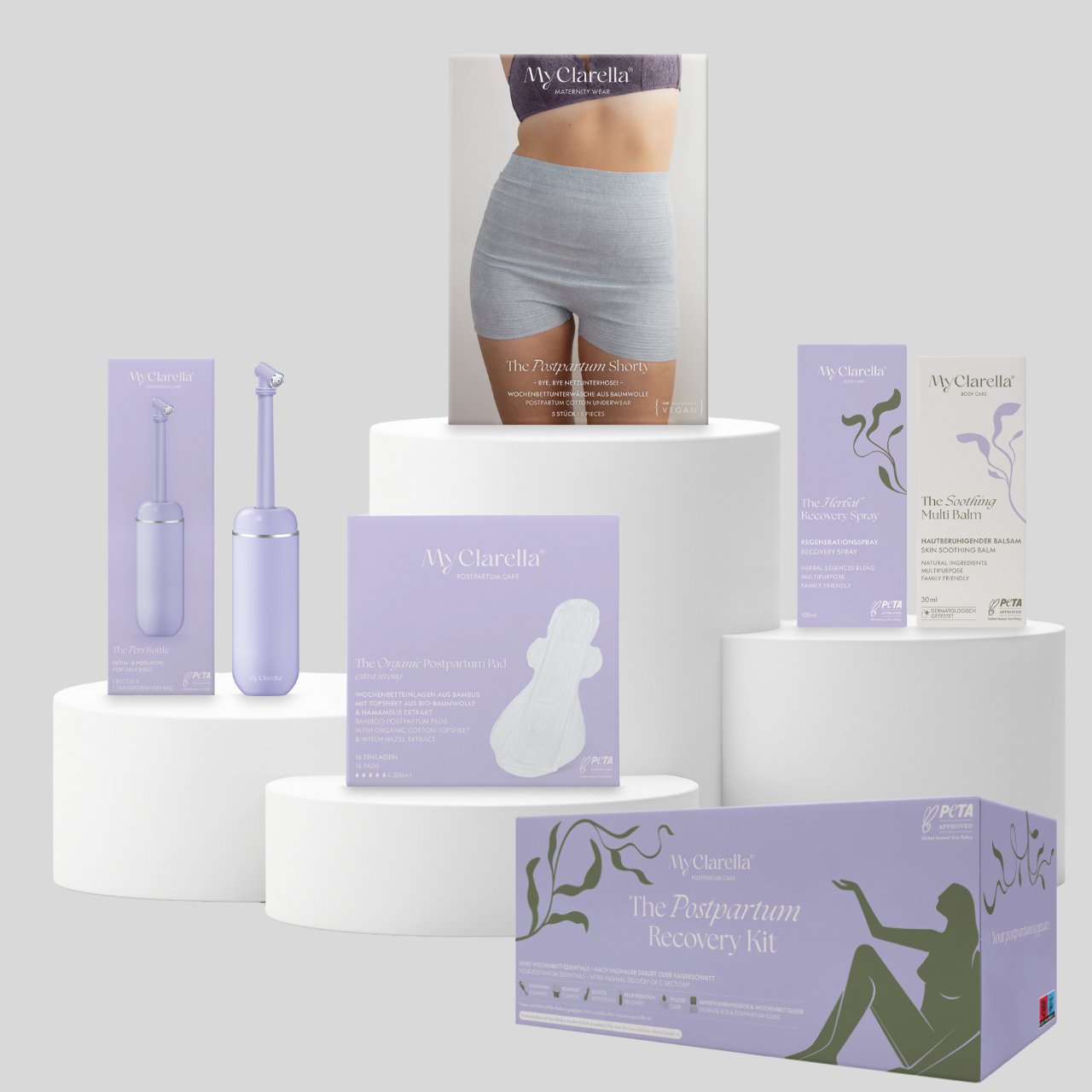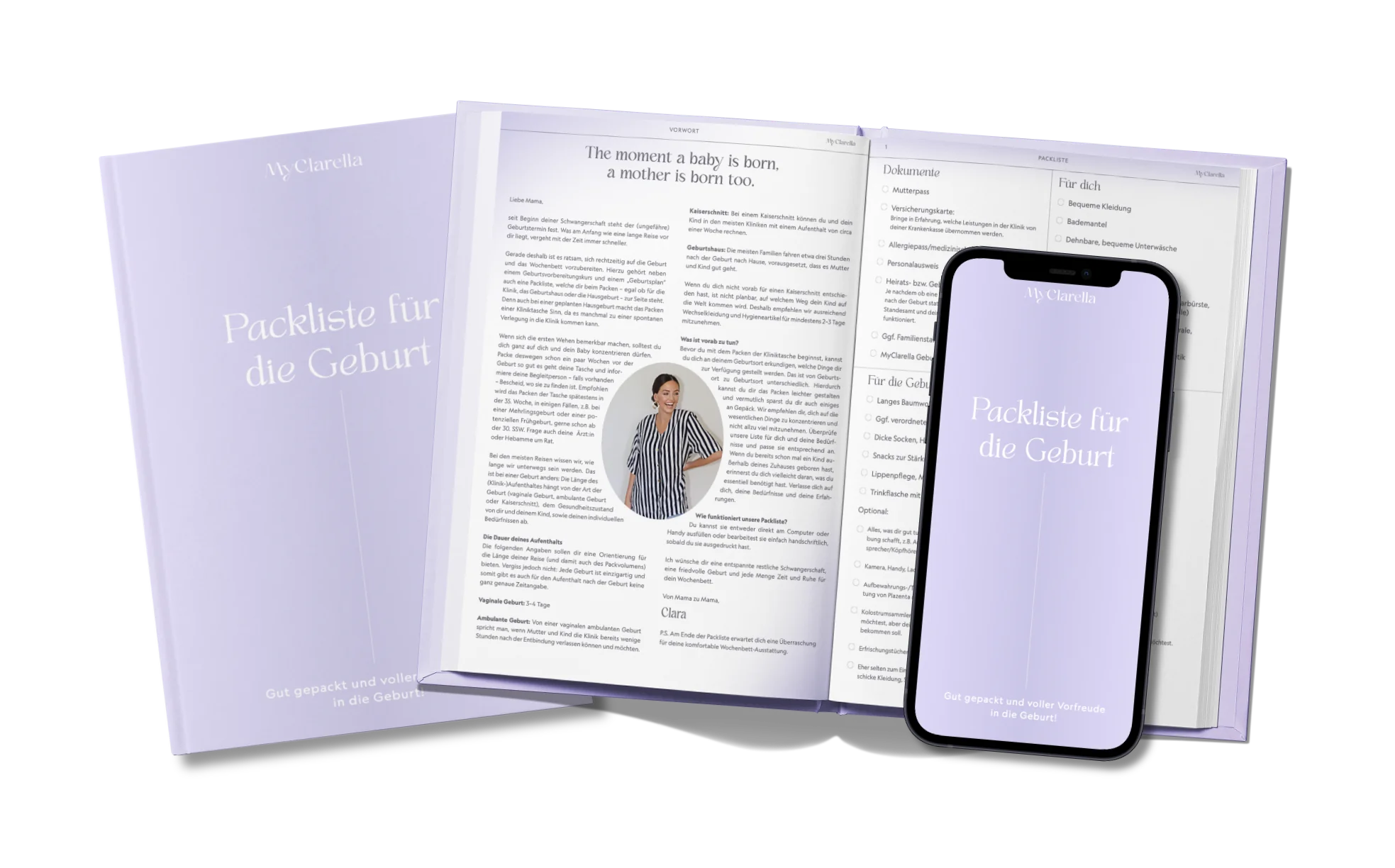Fear of childbirth
Are you afraid of giving birth? Or: Have you ever been anxious about giving birth? Probably yes - if you are a woman (whether you are a mother or not), you probably know this fear. For some women, the fear is greater, and for others less. And in any case, it is one thing: very complex. There are many different fears and reasons for fear of giving birth. But let's start at the beginning.
Typical fears before childbirth
If you have never given birth before, your fears are probably quite vague: What can you expect? How will you and your child be? How will you feel? Will you manage?
These fears come from the fact that you have probably heard terrible stories that have stuck in your mind. And that birth is something that you have had no (or only little) experience with. After all, we don't usually experience other births (unless we are doctors or midwives). Then it is the fear of the unknown that makes us very insecure.
If you've already experienced a difficult birth, you're probably very anxious about it happening again. Depending on what happened to you, your fears will likely revolve around loss of control, injuries, interventions, harsh doctors or midwives, or separation from your child.
And all of these worries and fears are normal and completely understandable. You are not alone!
Why is the fear of childbirth so common?
Maybe you remember how your mom talked about your birth when you were a child. And you've probably seen a lot of films in which a child is born. Very often, birth is portrayed as dramatic, loud, and painful. Did that scare you? I have memories like that. It's the conscious assumptions about birth that make you afraid.
Additionally, there are unconscious assumptions and expectations of birth anchored within us. These assumptions are usually much more powerful than the conscious ones. Unconscious fears of birth arise from our life experience: What image have you always been given of birth? What do you automatically associate birth with without questioning it? With pain and suffering? With a sterile hospital? With the separation of mother and baby? Do you think of screaming women lying on their backs, “in labor”?
Or do you think of femininity, pure vitality, and an active, self-determined woman giving birth when you think of birth? A woman who is happy and laughing? Massage and relaxation? A comfortable environment in candlelight?
The images that come to mind unfiltered and automatically at first are your subconscious images of birth. And that is often where the greatest fear lies, but also the greatest leverage!
Phew – is the fear so deep now?!
The realization that the fear of giving birth is so deep-seated and can be firmly anchored both consciously and unconsciously is of course not particularly pleasant. But it is possible to resolve these fears. And it is also very useful! If the fears are not resolved, they can suddenly overwhelm you during the birth and block you (see fear-tension-pain-circulation below). If you have already experienced a birth that was not a pleasant experience for you, then it is likely that you will be reminded of exactly that during the next birth if you have not processed your experience. This experience remains stored in your body and will be reactivated as soon as the same physical symptoms appear as before.
This can also reactivate unpleasant feelings. You will likely be very afraid during birth. And even if you have no conscious memories because it is your first birth, you may suddenly become afraid. If you have consciously or unconsciously stored negative ideas about how birth takes place, you will almost automatically become anxious and tense during birth.
The effects of fear on childbirth
Fear triggers a physiological reaction in your body. Hormones are released that make your body ready to perform, to fight. This also causes certain muscles to tense up - especially the muscles in your arms and legs. During birth, this also means poorer blood flow to the uterus. The muscles of the uterus then no longer work harmoniously with one another, which in turn can cause severe pain. Gynecologist Grantly Dick Read described this connection as a cycle of fear (before birth), tension (of the muscles), and pain (which arises from muscle tension).
If you feel severe pain during birth, you will most likely become even more afraid and your body will tense up even more. This will only escalate the cycle. But it also works the other way round: if the fear decreases, the tension can be released and the pain will be less. Grantly Dick Read said that the less anxious the woman is going into the birth, the easier the birth will be.
How do I get rid of the fear of childbirth?
First of all, we can't get rid of anything we don't address. The more we try to "get rid of" something by ignoring it, the more it catches up with us. Have you ever tried to ignore the coffee stains on the floor? Or the disagreements with your partner? The longer you wait, the more it catches up with you. You have to actively address the coffee stains to remove them. Talking to your partner is the only way to get you back on the same track.
And that's exactly how it is with fears about giving birth: they want to be looked at before they can say goodbye. So acknowledge them. Give the fears space, feel what they want to tell you. Take a close look, or listen to your fear: What are you afraid of?
The message of fear
If your fear is particularly about your child's health, then you're already in the middle of being a mom: welcome to the constant worry that something could happen to your precious little human! This fear will probably stay with you for the rest of your life. Because that's just how we moms are: programmed to protect and care for our offspring. And that's a good thing!
Your worries are completely natural. Over time, it will become easier to deal with them and you will discover that your key is trust. There are some things you can influence and do your best to achieve them. But some things are simply not in your power and outside of your control. And here you have no choice but to trust. Trust that everything will turn out as it should.
And then there are the worries about you: pain, loss of control, and how you will fare during the birth. These fears can be very overwhelming because they can sometimes seem very diffuse and big.
But this is exactly where your chance lies: You can look at the fears, examine them closely, and then realize they want to protect you from something bad happening to you (again). Very useful, isn't it?
Your fears are your chance to realize that the things you fear are not outside of your control. You can influence a large part of them. For example, by preparing yourself, by processing your experiences, and by developing a concrete plan of what you can do.
Take back control of your birth!
To protect yourself from things you have less control over during pregnancy and birth, it is your job to place yourself in helping hands with complete trust. Where, how, and who that might be is your job to find out for yourself. It could be a midwife or a doula, it could be psychological or therapeutic support beforehand. But maybe you also need a change of environment and time for yourself?
You should control what you can control. For example, your approach to birth, how you deal with challenging situations during birth, your birth location and your birth companions, processing previous experiences, and resolving your fears.
With these things, you can regain control and make your fear of giving birth seem minimal. Make sure you get some useful support. And you will see: you will be the master of your birth again!
Guest author: Julia Berg (www.julia-berg.com)







Leave a comment
All comments are moderated before being published.
This site is protected by hCaptcha and the hCaptcha Privacy Policy and Terms of Service apply.